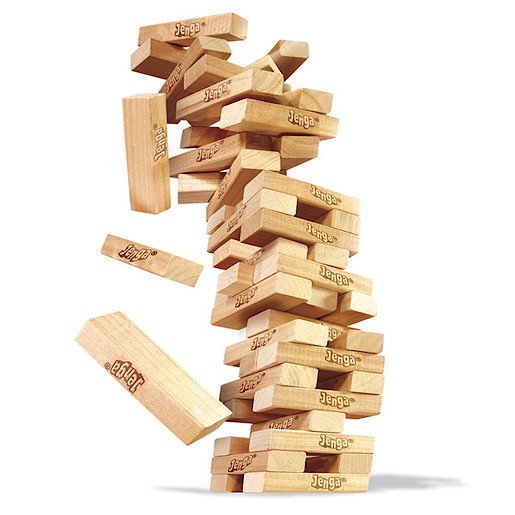
Researchers at MIT have created a robot that is learning how to play the popular game Jenga. The game involves stacking rectangular bricks in layers perpendicular to each other, and one-by-one removing a block to place on top of the tower. Once the tower falls, the game is over.
This robot has learned the game by grouping outcomes of its moves into clusters. This has allowed the researchers to have a successful machine while avoiding thousands of attempts, which would mean building the tower thousands of times.
Machine learning has most commonly been used for intellectual tasks so far. The general public is widely familiar with these actions, such as Amazon recommendations based on past purchases, G-Mail suggestions when writing emails, or detecting fraud in online purchases. This development is relevant because it is the first step into machine learning performing physical tasks. The Jenga-robot uses visual and physical cues in addition to knowledge and data. Data is gathered based on feedback from the machines camera and claw to correlate the position, tension, and movement of the piece with the result of the move.
With the success of this Jenga-playing robot, machine learning can venture into more physical tasks, like separating items in a recycling center. The research will also help with the recognition of physical clues that humans instinctively know. The snap we feel when closing a container is not easily persevered visually, but it is the main indicator that the container has been successful sealed. These advancements will help to expand the scope of machine learning and broaden its reach into even more industries.
Video:
Sources:
https://www.sciencedaily.com/releases/2019/01/190131101016.htm
https://www.sas.com/en_us/insights/analytics/machine-learning.html
It truly is amazing how far technology has come to where robots are now able to play strategic games like Jenga or even Chess. Machine learning is something that will one day evolve around us and may become part of everyday life. For example, an automobile like the Tesla can detect and read the road and make thousands of adjustments every second for maximum occupant comfort. It does this with radars and uses the GPS to predict which type of roads (hill, curves) are upcoming. With all of this being said, I am happy I chose a major that is IT related when we are living in a quickly evolving IT world.
This topic is really interesting to me because normally you would not think about designing a robot to play games. I have heard of ones that solve medical problems, assist in manufacturing, and even in vacuums, but the fact that robots are now being designed to do other, less important tasks, means that they might have a more profound impact on our lives in the future. Ideas can flow freely now. Robots may be an important aspect in every part of our lives in the near future.